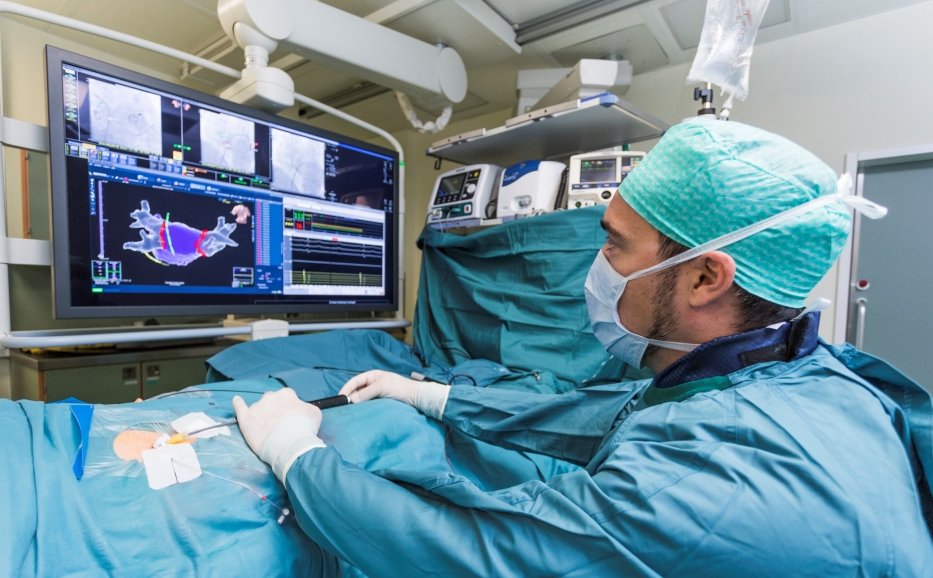Arrhythmia and Atrial Fibrillation
A healthy heart has a regular (rhythmic) pulse and beats between sixty and eighty times per minute. This heart rate is controlled by the heart's conduction system, resulting in a rhythmic contraction of the atria and ventricles of the heart. The frequency of the pulse can adapt to the stress to which the human body is exposed. During arrhythmia or atrial fibrillation, the heart sometimes - or continuously - fails to beat rhythmically, but is instead arrhythmic. In addition, its rate is too low (bradycardia) or too high (tachycardia), and is unable to adapt suitably to stress. This is caused by a disorder of the conduction system of the heart, leading to a partially erratic contraction of the walls of the atrium (heart rate 300-600 beats per minute). The result is a noticeable decline in physical strength, and if left untreated it can even lead to a stroke.
There are many possible causes of atrial fibrillation. These range from a disease of the coronary arteries to heart valve disorders, high blood pressure and diseases of the myocardium. Atrial fibrillation can also develop spontaneously, for no obvious reason.


